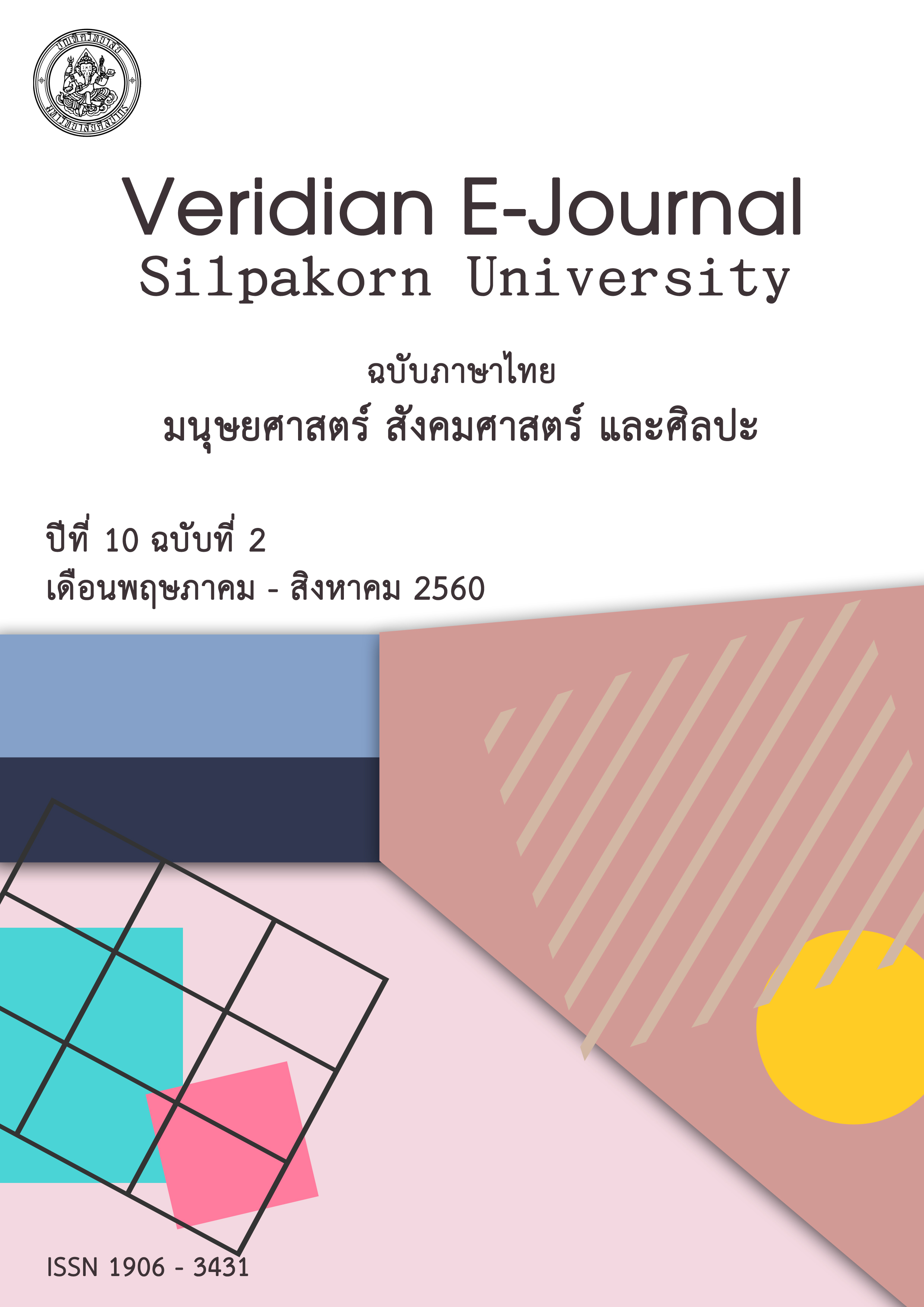การจัดการศึกษาตลอดชีวิตโดยใช้ทุนทางวัฒนธรรมของชนเผ่า ญัฮกุร
Main Article Content
บทคัดย่อ
การวิจัยเรื่องการจัดการศึกษาตลอดชีวิตโดยใช้ทุนทางวัฒนธรรมของชนเผ่าญัฮกุรมีวัตถุประสงค์เพื่อศึกษาทุนทางวัฒนธรรม องค์ความรู้เกี่ยวกับขนบธรรมเนียมประเพณีของกลุ่มชาติพันธุ์ญัฮกุรบ้านวังกำแพงและเพื่อศึกษาการจัดการศึกษาตลอดชีวิตในชุมชนของกลุ่มชาติพันธุ์ญัฮกุร บ้านวังกำแพง โดยการศึกษาเชิงคุณภาพ การสัมภาษณ์แบบเจาะลึกกับกลุ่มผู้ให้ข้อมูลจำนวน 25 คนและการสังเกตการณ์แบบมีส่วนร่วม ผลการศึกษาพบว่า ทุนทางวัฒนธรรมที่ยังคงอยู่ของชาวญัฮกุรบ้านวังกำแพงแบ่งเป็นทุนทางวัฒนธรรมที่จับต้องได้คือประเพณีแห่หอดอกผึ้งและรำโทนส่วนทุนทางวัฒนธรรมที่จับต้องไม่ได้คือการร้องป๊ะเรเร ความเชื่อเรื่องผีและการเป่าใบไม้ ส่วนการจัดการศึกษาตลอดชีวิต ในส่วนการศึกษาในระบบการนำภูมิปัญญาท้องถิ่นไปสอนในระบบโรงเรียนโดยจัดเป็นศูนย์การเรียนรู้ในโรงเรียน มีหลักสูตรท้องถิ่น มีการบูรณาการกับกิจกรรมต่างๆในทุกกลุ่มสาระการเรียนรู้ สำหรับการศึกษานอกระบบการจัดให้มีวิชาญัฮกุรในหลักสูตร มีแหล่งเรียนรู้ จัดนิทรรศการ นำเสนอและเผยแพร่วิถีชีวิต ประเพณีวัฒนธรรมของชาวญัฮกุร จัดรวมกลุ่มชาวญัฮกุรตามภูมิปัญญาและความถนัด จัดเป็นศูนย์การเรียนรู้ในชุมชนที่วัด บ้านผู้ใหญ่ และศาลากลางบ้าน จัดทำตำราเกี่ยวกับชาวญัฮกุร ส่วนการศึกษาตามอัธยาศัยการจัดให้มีการเรียนรู้วิถีชีวิต ภาษา ประเพณี วัฒนธรรมชาวญัฮกุร ในชีวิตประจำวัน บูรณาการเรียนรู้วิถีชีวิตชาวญัฮกุรร่วมกับวิถีชีวิตชาติพันธุ์อื่นๆในชุมชน จัดทำศูนย์การเรียนรู้ในชุมชน
The purposes of this research were to study the cultural capital and knowledge of the traditions of the Nyah-Kur ethnic group in Ban Wang Kamphaeng and to study the educational management with lifelong learning of the Nyah-Kur ethnic group in Ban Wang Kamphaeng. A qualitative research design was conducted using in-depth interviews and the participant observations of twenty-five informants. The results found that the cultural capital of Nyah-Kur remaining for the Nyah-Kur of Ban Wang Kamphaeng were tangible cultural capital, such as the Wax Flowers Hall Procession and the Tone dance.The Intangible cultural capital was in the field of singing Pee-Rae-Rae, a belief in ghosts, and blowing leaves. In terms of lifelong education; formal education provided local wisdom to the school system by using the learning center, the local curriculum and the integrat on of activities into all contents. Non-formal education provides the Nyah-Kur subject into the curriculum, through resources, exhibitions, presentations and ways of life, Nyah-Kur traditions, Nyah-Kur groups and their wisdom and aptitude, the provision of a learning center in the community and at the temples, the house of the village head and the town hall. Moreover, a textbook about the Nyah-Kur is also needed.The aspect of informal education, to provide learning in terms of ways of life, language customs and Nyah-Kur’ culture in everyday life. The integration of learning among Nyah-Kur with other ethnic groups and the establishment of community learning centers.

